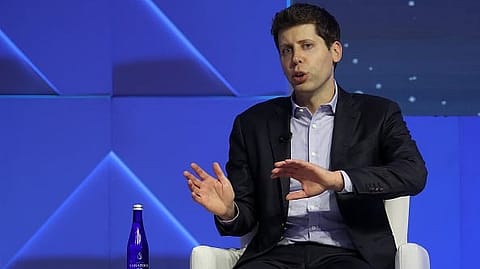‘You never know’: Sam Altman says using 'please' and 'thank you' with ChatGPT is costing 'tens of millions'
OpenAI CEO Sam Altman calls it "dollars well spent" as experts say polite prompts help AI generate more collaborative and respectful responses

Are you one of those people who like to show etiquette to an AI bot and interact with it politely? OpenAI CEO Sam Altman has stated that people using words like "please" or "thank you" are costing their AI models "tens of millions of dollars."
However, the CEO of the biggest AI company says it's "dollars well spent."
An X user asked Altman about how much money his AI company spends on electricity costs from people writing or saying "please" and "thank you" to ChatGPT models. He replied, saying, "It's tens of millions of dollars well spent."
"You never know," he added.
Though it may seem unnecessary to engage with a chatbot in a polite manner, experts agree that such behaviours help AI in generating collaborative and respectful responses. Research also backs such claims.
According to a Microsoft WorkLab memo, using a polite tone with AI goes a long way.
The memo says it’s not that an AI chatbot feels "appreciative" when one says "please" and "thank you," but using basic etiquette when interacting with AI helps generate "collaborative" outputs.
Recommended Stories
Microsoft’s Kurtis Beavers, a director on the design team for Microsoft Copilot, wrote in the memo that “using polite language sets a tone for the response.”
As of early 2025, ChatGPT has experienced significant growth in its user base and engagement, with registered users at over 180.5 million. Approximately 100 million users engage with ChatGPT on a weekly basis, with the AI model receiving around 1.7 billion page views per month. India has now become the fastest-growing market for ChatGPT.
Earlier this month, OpenAI-led ChatGPT took the world by storm with its latest image generation tool, prompting users to generate a staggering 700 million "Ghibli"-style images in just four days of its launch.